
Château Léoville Las Cases Wines
Château Léoville Las Cases is today among the most emblematic estates of the prestigious Saint-Julien appellation located on the Left Bank from the Bordeaux region. Its wines continue to reach the...Read More

In-Stock

In-Stock

In-Stock

In-Stock

In-Stock

In-Stock

Stock currently at the producing estate – Will ship after 21 March 2026

In-Stock

In-Stock

En Primeur Wines – delivery in early 2027

In-Stock

Stock currently at the producing estate – Will ship after 8 January 2026

In-Stock

In-Stock

In-Stock
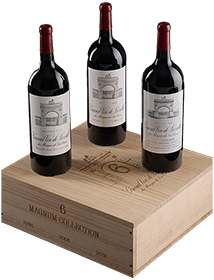
In-Stock

In-Stock

In-Stock

Stock currently at the producing estate – Will ship after 21 January 2026

In-Stock

En Primeur Wines – delivery in early 2027

Stock currently at the producing estate – Will ship after 22 January 2026

Stock currently at the producing estate – Will ship after 21 January 2026

Stock currently at the producing estate – Will ship after 21 January 2026

In-Stock

In-Stock

In-Stock

In-Stock
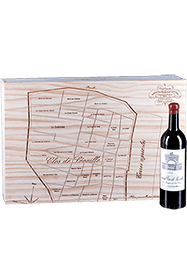
In-Stock

In-Stock

Stock currently at the producing estate – Will ship after 21 January 2026
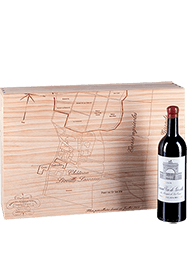
In-Stock

In-Stock

In-Stock

Stock currently at the producing estate – Will ship after 21 January 2026
Château Léoville Las Cases | The Mighty Lion of Saint-Julien
A Bordeaux icon with an illustrious past, Château Léoville Las Cases is the resting lion of Saint-Julien, awoken after time in bottle to reveal its mighty roar in the glass. This is a “Super Second” with undeniable pedigree, its vineyard descended from the ancient Domaine de Léoville estate and today occupying 136 acres of prime Médoc terroir.
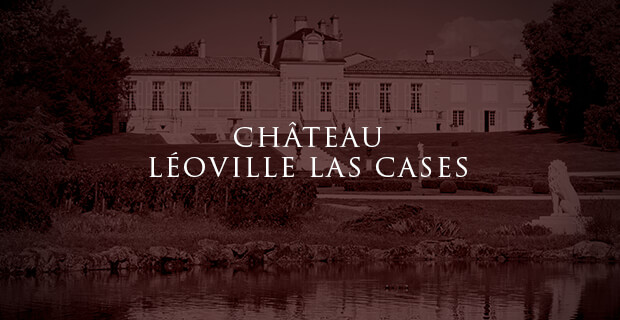
Through its traditional Left Bank blend of Cabernet Sauvignon, Merlot and Cabernet Franc, the First Wine conveys with great eloquence the full splendour of its legacy, unfurling vibrant black fruit, violets, lavender and earthy autumn underbrush on the nose. The palate is so structured yet admirably delicate, leaving behind great intensity and substance on the finish. Château Léoville Las Cases will be the perfect guest at your next family feast, gracing your holiday table with its abundant personality.
The History of Château Léoville Las Cases
Château Léoville Las Cases is recognised as one of the oldest wine estates in the Médoc region of Bordeaux, with an illustrious history dating back to the 17th century. Originally, this property was part of the much larger Domaine de Léoville estate, owned by the Moytie family, followed by the Gascq family. Between 1826 and 1840, the estate was split up as a direct result of the French Revolution. A small section of the estate became Château Léoville Barton. Another piece broke off in 1840 to become Château Léoville-Poyferré. Château Léoville Las Cases was created from the remaining 3/5 of the original estate and became the property of Pierre Jean de Las Cases.
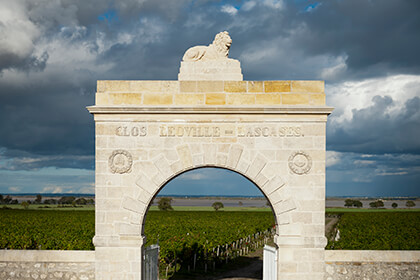
Shortly after the split, Château Léoville Las Cases was ranked a Second Classified Growth in the 1855 Classification of the Médoc and Graves. Due to the spotless reputation of the estate’s wines, the Château has been nicknamed « First of the Second Crus ». Château Léoville Las Cases is also considered to have been the first Bordeaux producer to release a second wine, the Clos du Marquis cuvée in 1902. Nevertheless, this bottling was made from a different terroir than the Grand Vin so today it is not technically considered a “true” second wine.
During the second half of the 19th century, Château Léoville Las Cases was run by the Las Cases family, represented by Pierre Jean, Adolphe and Gabriel de Las Cases. In the year 1900, the Château was purchased by Théophile Skawinski, who also served as General Manager of the estate. Throughout the course of the 20th century, Skawinski would pass his shares to his heirs, the Delon family, who eventually became the sole owners of the estate. From the 1970’s until 2000, the estate was under the direction of the innovative Michel Delon, who elevated the quality of the estate’s wines to their former glory.
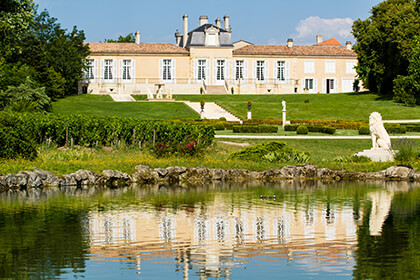
Today, Château Léoville Las Cases is the property of Michel Delon’s son, Jean-Hubert Delon, who also own Château Potensac in the Médoc and Château Nenin in Pomerol on the Right Bank of Bordeaux. Together, these three estates make up the Domaines Delon.
The Château Léoville Las Cases Terroir
Today, Château Léoville Las Cases extends over 55 hectares (136 acres) of vines in the Saint-Julien appellation of the Médoc on the Right Bank of the Bordeaux region of France. The vines are 52 years old on average and planted at a density of around 8,600 plants per hectare. At the heart of the Château Léoville Las Cases vineyard is the walled L’Enclos, producing fruit of great intensity and terroir expression.
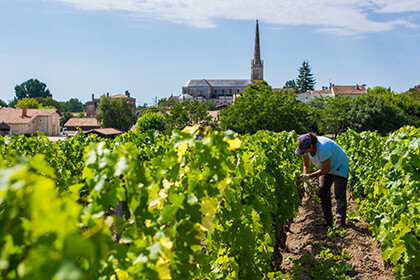
The Château Léoville Las Cases terroir is largely influenced by the proximity of the Gironde River, which, over history, has created a wide diversity of soils in this area. Today, the vineyard is home to Quaternary gravel over subsoils of gravelly sand and gravelly clay. This gravel-rich soil creates the ideal environment for Cabernet Sauvignon, which occupies 61% of the vineyard and is complemented by 21% Merlot, 16% Cabernet Franc and a very small amount of Petit Verdot. The nearby Gironde River moderates the harsher winter and summer temperatures in the vineyard, alleviating the risk of frost in the spring and allowing for an early ripening of the grapes, vintage after vintage.
The Signature Style of Château Léoville Las Cases
Relying on the traditional winemaking techniques of the Médoc, Château Léoville Las Cases produces two wines, its namesake Grand Vin and the Second Wine called Le Petit Lion.
The Château Léoville Las Cases is composed of roughly 80% Cabernet Sauvignon, 10% Merlot and 10% Cabernet Franc, with the exact proportions depending directly on the nature of each vintage. In the 2019 vintage, picking started early with Merlot on the 18th of September and ended with Cabernet on the 8th of October. The ageing takes place for 18 to 20 months in exclusively or almost exclusively new French oak barrels.
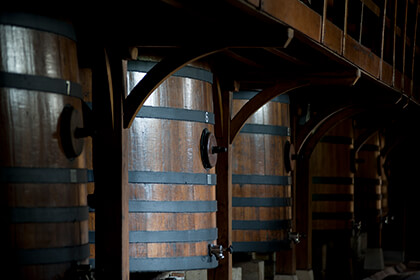
The result is a wine that thrills wine critics with each new vintage. In the glass, the Château Léoville Las Cases du Marquis de Las Cases displays an opaque purplish-black hue, which foreshadows a wine of great intensity and substance. On the nose, this St-Julien Second Growth tends to unfurl vibrant black fruit (fresh blackcurrants, blackberries and black cherries), followed by some floral fragrances (violets and lavender) and earthy hints of autumn underbrush.
The palate presents a sturdy structure of finely grained tannins layered with flavours of bright and crunchy black fruit, along with a taught minerality. The finish is stunning and seemingly never-ending. This is a wine to keep for a decade in order to allow it to fully open. It will continue to drink beautifully for the next 50-60 years. As for pairings, we recommend a tender filet mignon of beef cooked rare with a side of roasted beetroot.
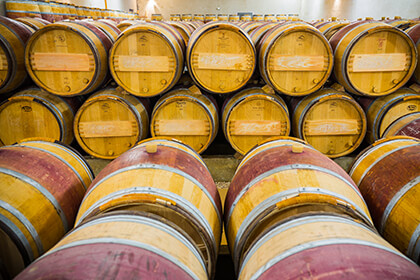
Le Petit Lion is the Second Wine of Château Léoville Las Cases and a more accessible introduction to the signature style of this Saint-Julien estate. The blend is composed of roughly 45% Cabernet Sauvignon, 45% Merlot and 10% Cabernet Franc, with the exact proportion depending on the characteristics of each vintage. This wine is aged in roughly 30% new French oak barrels. Like its big brother, Le Petit Lion displays a dark purple colour in the glass. On the nose, this Saint-Julien Second Wine reveals black pit fruit and boysenberry, as well as a graphite minerality, tobacco and earthy nuances on the nose.
Truly a miniature version of the estate’s Grand Vin, Le Petit Lion du Marquis de las Cases shows great structure and length on the palate, while more Merlot gives this wine a certain plumpness in texture. This is a Second Wine to age for 8-10 years and pair with comforting autumn stews or a roast lamb served medium rare.